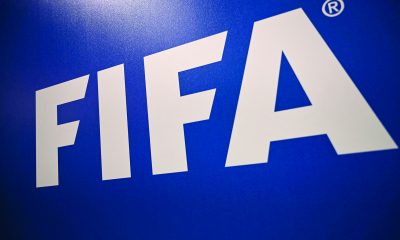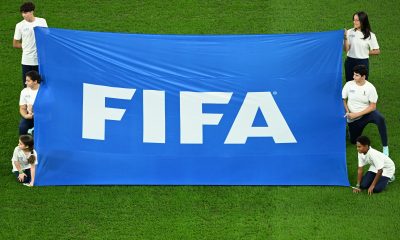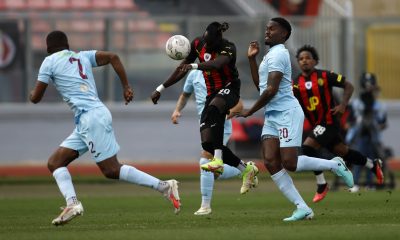
The writing was on the wall.
The indefinite extension of the COVID-19 ban on organised sports events and contact-sport training forced the Malta Football Association to prematurely terminate the domestic football competitions for the second season running.
Together with the Malta Basketball Association and the Aquatic Sports Association, the MFA has been vociferous in its opposition of the prolonged sports ban for a variety of reasons, including its increasing negative effects on athletes who are currently unable to take part in any form of contact-sport training, the disruptive impact on the competitions and the ensuing repercussions on the preparations of the national teams, financial issues and the health and well-being of children, youths and the society.
At the MFA Executive Committee meeting held on Friday, it was revealed that the association has spent over €200,000 in COVID-19 protocols to sustain the domestic competitions for seven months before the sports ban came into effect while the financial losses incurred by the MFA since the outbreak of the pandemic surpass €2 million.
Taking cue from the official statistics and information provided by the MFA following Friday’s Executive Committee, The Times of Malta Sportsdesk requested further details from the governing body of local football to better understand the scale of the effort undertaken in the last eight months to ensure the sustainability of the competitions, the financial impact on the association and local football, and the ongoing challenges.
“First and foremost, it must be noted that the weekly bulletins issued by the Public Health showed that the sharp rise in coronavirus cases in March was not caused by sports events. This is further supported by the data (titled Where is COVID-19 being spread?), published by the Superintendant of Public Health on March 5, 2021,” the MFA said.
“The MFA went to great lengths to prepare and implement rigorous health and safety protocols for the restart of competitions back in September. In Malta, football had a double-layered safeguard. Whereas across Europe, footballers are able to play by providing a negative test, in Malta whenever a player or member of the team staff tested positive, the entire squad was subjected to a contact-tracing assessment which often resulted in a number of athletes being put into preventive quarantine.
“To do this, the MFA employed 11 doctors, every club appointed a COVID-19 liaison officer, which also extended to Gozo and futsal, and the medical protocols, which were approved by the Health Authorities, were fully adhered to.”
This whole operation, which covered the provision of PCR and rapid COVID-19 tests for players and team staff, was essential to ensure the sustainability of the football competitions since September, the MFA added.
Statistics published by the association show that, as of April 8, 2021, the number of swab tests conducted by the MFA for the
Premier League and the Challenge League amounted to just over 2,000 (the total goes up to over 4,000 for all categories and the national teams).
Ninety-eight per cent of the tests for the top two tiers resulted negative, the total of individual contact-tracing assessments stood at 3,493, while 91 per cent of the scheduled matches were delivered as planned.
Enormous commitment
Speaking to The Sunday Times of Malta, Bjorn Vassallo, the MFA president, said: “It is clear that the association has made an enormous effort to organise its competitions with the appropriate health protocols and measures in place.
“This process entailed a lot of hard work and sacrifices from the association’s staff members, who literally worked around the clock to cope with the onerous demands of the protocols, administrators and the clubs. Pity that their efforts have not been enough to bring the competitions to their natural conclusion due to the ongoing sports ban.
“From a financial perspective, the implementation of the COVID-19 protocols and measures cost us over €200,000 but, even in these difficult times where the loss of income is substantial, we were prepared to do whatever was needed to keep the competitions going.
“The MFA has already lost €2 million because of the measures related to the COVID-19 pandemic and, due to contractual obligations, the enforced decision to terminate the competitions represents another financial setback amounting to €150,000 over and above the losses incurred as far.
“Unfortunately, this situation has left us with no option but to introduce internal cost-cutting measures as the association can’t sustain these financial losses.
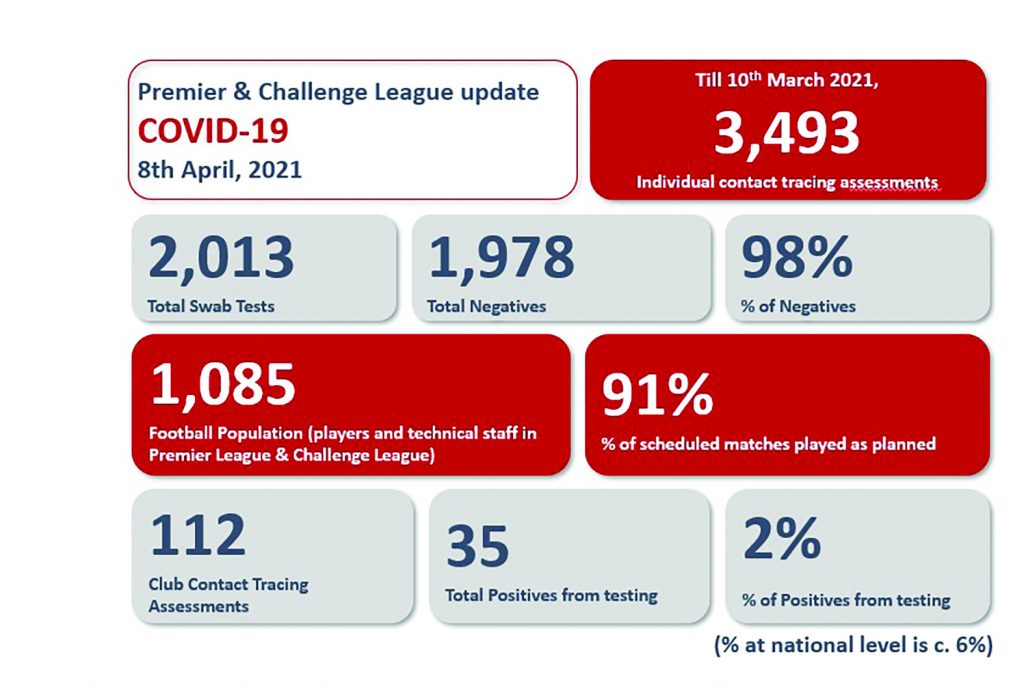
“The clubs have also been severely impacted and this explains why we have been emphasising the need to prioritise elite football. I still can’t fathom how the Health Authorities failed to understand the difference between sport at elite level and amateur and recreational sport whereas other countries made this crucial distinction.
“We are aware of the health challenges and priorities brought about by the COVID-19 pandemic but our arguments are based on official statistics and data which show that the impact of sports on the transmission of COVID-19 at its peak was negligible.
“Football is an industry. The clubs in the top two tiers – the Premier League and Challenge League – have 1,000 contracts between full-time and part-time footballers and employees with a combined turnover of over €8 million.”
On Friday, the MFA Executive committee announced that, in the current circumstances, it is not possible to eventually resume the domestic competitions which were subsequently terminated.
The Executive Committee invoked Article 8 of Section VII of the association’s Rules Governing Competitions which was introduced last year to address ‘force majeure’ circumstances in light of the unprecedented scenarios and complications brought about by the COVID-19 pandemic.
The key outcomes were that the 2020/21 BOV Premier League classification (after matchday 23) is to stand as the requirement of 75 per cent of the matches played has been met and Ħamrun Spartans have been declared champions.
The BOV Challenge League and BOV Women’s League have been declared abandoned as the above-mentioned criteria has not been satisfied and the BOV National Amateur League (won by Luqa St Andrew’s) is to stand as it concluded before the sports ban came into effect on March 10.
Asked to elaborate on the main reasons which guided the Executive Committee’s decision to end the competitions, Vassallo said:
“The Legal Notice banning organised sport has been extended for an indefinite period of time and the Superintendent of Health declared on Friday that the prohibition will not be lifted on April 26.
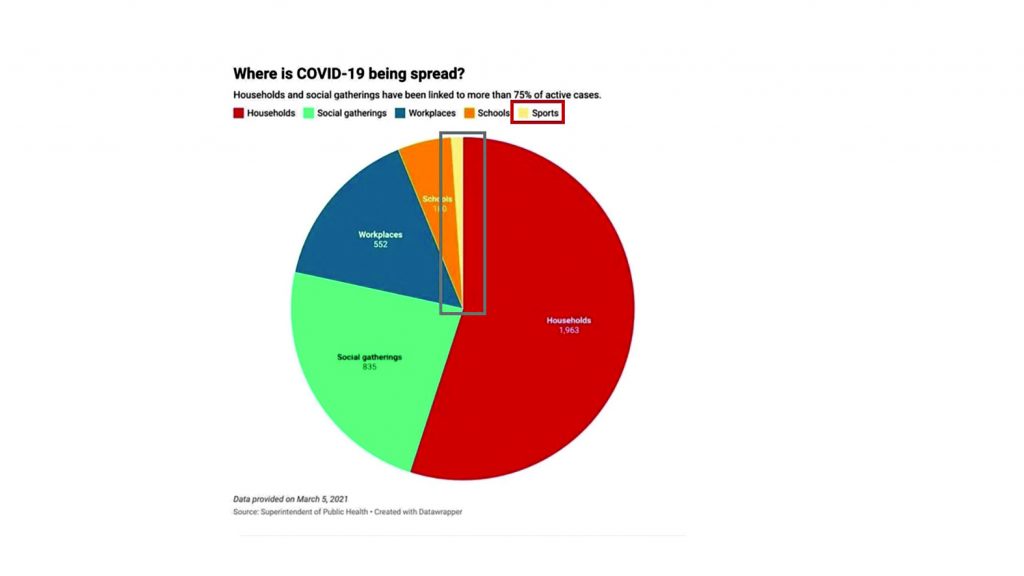
“Administratively, the 2020-21 season was scheduled to end June 8 (the football competitions were earmarked to conclude in May).
“From June 9, the clubs can enter into employment contracts for season 2021/22, meaning that it is not possible to extend the season for the Challenge League. The summer transfer window also opens on June 9.
“Once competitions are ended due to force majeure, you cannot then decide to cherry-pick and continue one competition – or even part of it – and not another. The conditions that define force majeure are well defined in the rules.”
“There are other pressing issues that must be taken into consideration. Foreigners engaged with local clubs would have to leave the country at the expiry of their contract and residence permits.
“As far as the Premier League is concerned, there is the UEFA-imposed deadline of June 1 to submit the names of the clubs participating in next season’s UEFA club competitions.
“The increasing financial difficulties faced by clubs is also a big concern – who was going to absorb the salary costs for an indefinite period of time at this point?”

World Cup News
-
FIFA World Cup
/ 4 weeks agoSon scores but Thailand hold South Korea in World Cup qualifier
Son Heung-min scored but South Korea were held 1-1 at home by Thailand in...
By AFP -
FIFA World Cup
/ 1 month agoJapan-N. Korea World Cup game to stay in Pyongyang, JFA says
Japan’s World Cup qualifier against North Korea will be played in Pyongyang as planned...
By AFP -
FIFA World Cup
/ 2 months agoGerman ex-FA bosses on trial over World Cup tax evasion
Three German ex-top football officials went on trial on Monday in a 13.7-million-euro ($14.8...
By AFP -
FIFA World Cup
/ 2 months agoSaudi Arabia formally launches bid for 2034 World Cup
Saudi Arabia formally launched its bid to host the 2034 World Cup on Friday,...
By AFP

Winter Olympics
Watch: Geisenberger wins sixth Olympic medal to tie luge record



